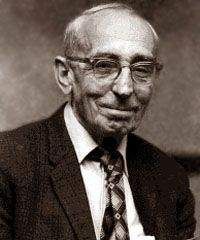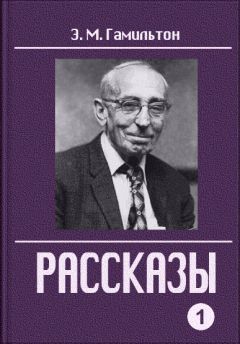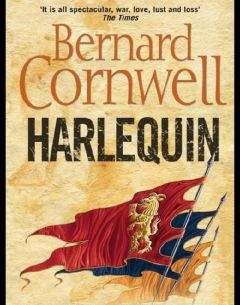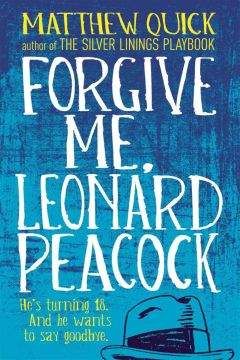Пользователь - o 3b3e7475144cf77c
over the tiles. Early April was the loveliest time of the year, and the patio was a little paradise,
with blossoms of every hue exulting in the floods of sunshine. The young mother might lie on a
chaise-longue in sun or shade, and read in a New York paper about March weather, with icy
gales wrecking the seashore cottages and piling small boats up on beaches.
In the most exquisite of silk-lined bassinets lay the most precious of female infants, with a
veil to protect her from over-curious insects. Near by sat a trained nurse, a mature and
conscientious Church of England woman. She had two nursemaids under her orders, which
were based on the latest discoveries in the physiology and psychology of infants. There was to
be no coddling, no kissing, no rocking to sleep of this mite of royalty; there was to be no
guesswork and no blundering in its care; no hostile germs were to steal past the barricades
which surrounded it, and anyone who showed the least trace of a cold was banished from the
premises. Guests and even relatives had to obey the orders of the all-knowing Miss Severne;
she was armed with authority to defy even grand- mothers. As for Irma, she had agreed to make
the supreme sacrifice; every four hours the precious bundle was to be brought for her nursing,
and she was to be on hand, no matter what temptations the world of fashion might put in her
way. Back to Rousseau!
There had been family councils and international negotiations concerning a name for this
multimillionaire heiress. Many claims had been entered, and if they had all been granted, the
little one would have been loaded down after the fashion of European royalty. Manifestly, it
wouldn't do to give her the name Beauty; that was something that had to be earned—and
suppose she failed to meet the test? Beauty's real name, Mabel, she didn't like—so that was out.
Irma's own claims she renounced in favor of her mother, to whom it would mean so much.
Irma was going to live most of her life in Europe, because that was what Lanny wanted; so
should they not give a pining dowager in a Long Island palace whatever solace she could derive
from having her name carried on? The Barnes clan also was entitled to consideration, having
furnished the money. "Frances Barnes Budd" was a name not hard to say; but never, never
was it to be "Fanny"! The Queen Mother of Shore Acres was helpless to understand how her
once lovely name was being put to such base uses in these modern days.
II
Irma was reclining in the patio, enjoying the delight of holding the naked mite in her arms
while it absorbed the sunshine of the Midi for a measured three minutes. Lanny came in, saying:
"Uncle Jesse is over at the villa. Do you want to meet him?"
"Do you think I should?"
"You surely don't have to if you don't feel like it."
"Won't his feelings be hurt?"
"He's used to that." Lanny said it with a grin.
Irma had heard no little talk about this "Red sheep" of her mother-in-law's family. At first
her curiosity hadn't been aroused, for she didn't take political questions to heart, and while
she had no doubt that Communists were dreadful people, still, if that was what Jesse Blackless
believed, he had to say it. Threats to the social order had never been real to Irma—at least not
up to the time of the panic. During that convulsion she had heard many strange ideas discussed,
and had begun to wonder about them. Now she said: "If you and your mother see him, I
ought to see him too."
"Don't let him corrupt you," replied the husband, grinning again. He got fun out of arguing
with his Red uncle, and used him for teasing other people.
Lanny went over to the villa and came back with a tall, odd-looking man, having an almost
entirely bald head fairly baked by the sun—for he went about most of the time without a hat.
He was dressed carelessly, as became a painter, with sandals, white duck trousers, and a shirt
open at the throat. His face had many wrinkles, which he increased when he smiled in his
peculiar twisted way; he was given to that kind of humor which consists in saying something
different from what you mean, and which assumes understanding on the part of other people
which they do not always possess. Jesse Blackless was satisfied with the world in which he
lived, and found his pleasure in reducing it to absurdity.
"Well, so this is Irma!" he said, looking down at her. She had covered up her bosom with the
orange-colored peignoir of Chinese silk which she was wearing. Her vivid brunette color, which
had come back quickly, should have pleased a painter; but Uncle Jesse painted only street urchins
and poor beggar folk and workingmen with signs of hard toil on them.
"And this is the baby!" he said, peering into the well-shaded bassinet. He didn't offer any
forbidden intimacies, but instead remarked: "Watch out for her—she'd be worth a lot to
kidnapers." A sufficiently horrid idea.
The visitor seated himself in a canvas chair and stretched his long legs. His glance
wandered from the young wife to the young husband and back again, and he said: "You made a
lucky choice, Irma. A lot of people have tried to ruin him, but they haven't succeeded." It was
the first time Lanny had ever known his Red uncle to pay anybody a compliment, and he
valued it accordingly. Irma thanked the speaker, adding that she was sure his judgment was
good.
"I know," declared the painter, "because I tried to ruin him myself."
"Have you given up hope?"
"There'd be no use in trying now, since he's married to you. I am a believer in economic
determinism."
Lanny explained: "Uncle Jesse thinks he believes that everybody's behavior is conditioned by
the state of his pocketbook. But he's a living refutation of his own theory. If he followed his
pocket-book, he'd be painting portraits of the idle rich here on this coast, whereas he's
probably been meeting with a group of revolutionary conspirators somewhere in the slums of
Cannes."
"I'm a freak," said Uncle Jesse. "Nature produces only a few of these, and any statement of
social causes has to be based upon the behavior of the mass."
So this pair took to arguing. Irma listened, but most of her thoughts were occupied with the
personality of the man. What was he really like? Was he as bitter and harsh as he sounded,
or was this only a mask with which he covered his feelings? What was it that had hurt him
and made him so out of humor with his own kind of people?
III
The discussion lasted quite a while. They both seemed to enjoy it, even though they said
sarcastic things, each about the other. The French word for abuse is "injures," which also means
injuries, but no hard saying appeared to injure either of these men. Apparently they had heard
it all before. Lanny's favorite remark was that his uncle was a phonograph; he put on a record
and it ground out the old dependable tune. There was one called "dialectical materialism" and
another called "proletarian dictatorship"—long words which meant nothing to Irma. "He wants
to take my money and divide it up among the poor," she thought. "How far would it go, and
how long would it take them to get rid of it?" She had heard her father say this, and it
sounded convincing.
They talked a great deal about what was happening in Russia. Irma had been a child of nine
at the time of the revolution, but she had heard about it since, and here on the Riviera she had
met Russians who had escaped from the dreadful Bolsheviks, sometimes with nothing but what
they had on. You would be told that the handsome and distinguished-looking head waiter in a cafe
was a former Russian baron; that a night-club dancer was the daughter of a one-time
landowner. Did Uncle Jesse want things like that to happen in France and the United States?
Irma tried to tell herself that he didn't really mean it; but no, he was a determined man, and
there often came a grim look on his face; you could imagine him willing to shoot people who
stood in his way. Irma knew that the Paris police had "detained" him a couple of times, and that
he had defied them. Apparently he was ready to pay whatever price his revolution cost.
Presently he revealed the fact that he was taking steps to become a citizen of France. He had
lived in the country for thirty-five years without ever bothering; but now it appeared that "the
party" wanted him to run for the Chamber of Deputies. He had made himself a reputation as
an orator. Said Lanny: "They want him to put on his phonograph records for all France."
Irma, who was money-conscious, thought at once: "He's come to get us to put up for his
campaign." Lanny didn't have much money since his father had got caught in the slump. Irma
resolved: "I won't help him. I don't approve of it." She had discovered the power of her money
during the Wall Street crisis, and was learning to enjoy it.
But then another point of view occurred to her. Maybe it would be a distinguished thing to
have a relative in the Chamber, even if he was a Communist! She wasn't sure about this, and
wished she knew more about political affairs. Now and then she had that thought about
various branches of knowledge, and would resolve to find out; but then she would forget
because it was too much trouble. Just now they had told her that she musn't get excited
about anything, because excitement would spoil her milk. A nuisance, turning yourself into a
cow! But it was pleasant enough here in the sunshine, being entertained with novel ideas.
Lanny apparently agreed with his uncle that what the Russians were doing was important—
for them. The dispute was over the question whether the same thing was going to happen in
France and England and America. Lanny maintained that these countries, being "democracies,"
could bring about the changes peaceably. That was his way; he didn't want to hurt anybody, but to
discuss ideas politely and let the best ideas win. However, Uncle Jesse kept insisting that Lanny
and his Socialist friends were aiding the capitalists by fooling the workers, luring them with false
hopes, keeping them contented with a political system which the capitalists had bought and
paid for. Lanny, on the other hand, argued that it was the Reds who were betraying the
workers, frightening the middle classes by violent threats and driving them into the camp of the
reactionaries.
So it went, and the young wife listened without getting excited. Marriage was a strange
adventure; you let yourself in for a lot of things you couldn't have foreseen. These two most
eccentric families, the Budds and the Blacklesses! Irma's own family consisted of Wall Street
people. They bought and sold securities and made fortunes or lost them, and that seemed a
conventional and respectable kind of life; but now she had been taken to a household full of
Reds and Pinks of all shades, and spiritualist mediums and religious healers, munitions makers
and Jewish Schieber, musicians and painters and art dealers—you never knew when you
opened your eyes in the moming what strange new creatures you were going to encounter
before night. Even Lanny, who was so dear and sweet, and with whom Irma had entered into
the closest of all intimacies, even he became suddenly a stranger when he got stirred up and
began pouring out his schemes for making the world over—schemes which clearly involved his
giving up his own property, and Irma's giving up hers, and wiping out the hereditary rights of
the long-awaited and closely guarded Frances Barnes Budd!
IV
Uncle Jesse stayed to lunch, then went his way; and after the nap which the doctor had
prescribed for the nursing mother, Irma enjoyed the society of her stepfather-in-law—if there
is a name for this odd relationship. Mr. Parsifal Dingle, Beauty's new husband, came over from
the villa to call on the baby. Irma knew him well, for they had spent the past summer on a
yacht; he was a religious mystic, and certainly restful after the Reds and the Pinks. He never
argued, and as a rule didn't talk unless you began a conversation; he was interested in things
going on in his own soul, and while he was glad to tell about them, you had to ask. He
would sit by the bassinet and gaze at the infant, and there would come a blissful look on his
round cherubic face; you would think there were two infants, and that their souls must be
completely in tune.
The man of God would close his eyes, and be silent for a while, and Irma wouldn't interrupt
him, knowing that he was giving little Frances a "treatment." It was a sort of prayer with which
he filled his mind, and he was quite sure that it affected the mind of the little one. Irma
wasn't sure, but she knew it couldn't do any harm, for there was nothing except good in the
mind of this gentle healer. He seemed a bit uncanny while sitting with Madame Zyszynski, the
Polish medium, in one of her trances; conversing in the most matter-of-fact way with the alleged
Indian spirit. "Tecumseh," as he called himself, "was whimsical and self-willed, and would tell
something or refuse to tell, according to whether or not you were respectful to him and
whether or not the sun was shining in the spirit world. Gradually Irma had got used to it all,
for the spirits didn't do any harm, and quite certainly Mr. Dingle didn't; on the contrary, if you
felt sick he would cure you. He had cured several members of the Bienvenu household, and it
might be extremely convenient in an emergency.
Such were Irma's reflections during the visits. She would ask him questions and let him
talk, and it would be like going to church. Irma found it agreeable to talk about loving
everybody, and thought that it might do some people a lot of good; they showed the need of it
in their conversation, the traces they revealed of envy, hatred, malice, and all
uncharitableness. Mr. Dingle wanted to change the world, just as much as any Bolshevik, but
he had begun with himself, and that seemed to Irma a fine idea; it didn't threaten the Barnes
fortune or the future of its heiress. The healer would read his mystical books, and magazines
of what he called "New Thought," and then he would wander about the garden, looking at the




